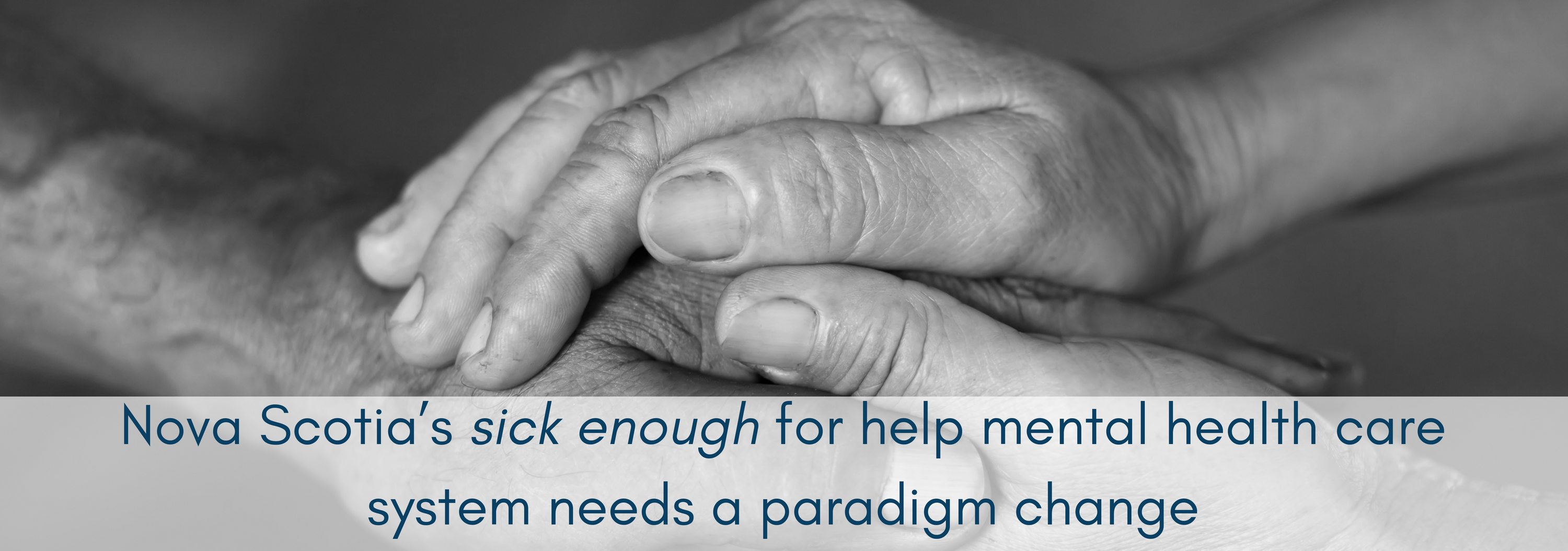
1 in 5 Canadians will have a mental health issue in any given year according to Nova Scotia’s Auditor General’s (AG) recent report on the province’s current mental health system. This report identifies many crucial problems within the current system.
However, the AG’s analysis of our current mental health care system is problematic as it focuses on emergency service delivery issues and access to mental health professionals for individuals with identified problems.
The report calls for better coordination and communication of services within our current delivery system and promotes the need for standardization of services across the province.
The problem with the current system, and with the analysis of the AG, is that it creates a threshold for service in which you must be sick enough to receive services. Standardization approaches also have a history of marginalizing people who do not fit the model. This leads to deeper inequities for the most vulnerable people in our society.
In the media, and within the health authorities, we continue to hear the issues framed and focused on the lack of coordination, resources, standardized process for those who are severally ill. This focus is embedded in a medical model analysis and sees this approach as best and the only solution for tackling the wide scope of mental health issues we face as a province.
Our province’s health authorities, the NSHA and the IWK, have stated that they will soon release their strategy to transform our mental health and addiction services. They believe that their strategy will address many of the critical issues identified in the AG’s report.
To create this strategy, we know that they will have thoroughly analyzed the current service delivery issues which indicate a lack of consistency in policies and procedure, treatment approaches, and resource allocation. They will have examined population data and the impacts of the social determinants of health and the need to address social inequities. Their report will highlight the need for trauma-informed practice, and cultural safety within services.
At the end of the day, despite all of their robust analysis, the strategy will prioritize and focus on treatments and approaches rooted in the medical model. This is the model that the health authority administration is embedded in and most comfortable with.
The medical model approach no doubt has strengths. However, it is limited in its capacity to embrace and mobilize actions to address the social determinants of health, cultural safety and the deep-rooted social inequities that we face. The medical model is also problematic as it does not adopt an intersectional approach.
Without an intersectional approach, the system will continue to try to standardize practice and put clients on a treatment assembly line, negating a contextual analysis of the lived experience of individuals and a connection to the social inequities that exist in peoples lives.
The medical model will diagnose and treat symptoms of those who are severely ill. The system will continue to focus on institutionalized approaches to treatment that stacks resources into emergency rooms and hospitals instead of communities.
Undoubtedly, our mental health system is desperate need of a shift. We cannot create a positive mental health system when there is such clear inequality in our society.
Our system needs to prioritize existing health inequities. We need a strategy that prioritizes resources for community-based prevention, education and addresses these inequities.
We need a strategy that recognizes post-modern practices embedded in empathy, solidarity and that works towards liberation from our oppressive structures.
We know mental health can be better treated before someone is in crisis. Our system needs to recognize this.
Waiting until Nova Scotians are sick enough before they receive services is regressive.
Nova Scotians deserve better.
Alec Stratford
NSCSW Registrar/Executive Director





